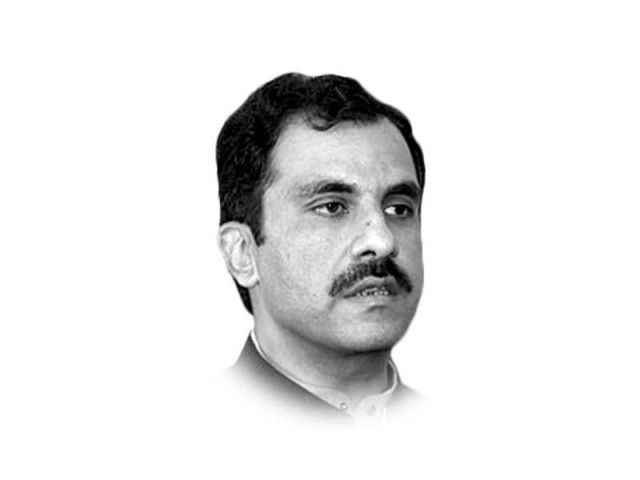Doctrine of Enduring Freedom
It will always be up to the US to decree what is terrorism and who is a terrorist.

The writer is a civil servant based
in Quetta
It was never supposed to be an operation. It has always been a doctrine of extending American hegemony over the world. Through the use of inhuman artillery, the US showed the world its muscles to wrangle any group infringing on American political and economic interests. The doctrine provided impeccable security to US interests where the US did exhibit that it was a different imperialistic power which could invade any country anytime and anywhere around the world, on the pretext of terrorism.
The Doha Peace Agreement betokened the Taliban as prospective US allies despite being the most feared and loathed faction by all US presidents and American citizens, since the launch of the OEF until so recently. Sadly, it took the US 18 bloody years of war and loss of thousands of Afghan lives in recognising the Taliban as US friends, and to reach a point where the superpower of the world is now found kneeling before the group requesting a cessation in violence against the US-led allied forces in Afghanistan. This has a significant value for the Taliban too, as they have emerged as a recognised power in the world with the guts to challenge the undisputed superpower. It seems that the OEF has met material failure as after 18 years, it is the same Taliban controlling most of the country and the Captain of the mission is openly announcing his apprehensions regarding the Taliban’s return to power once the US exits Afghanistan.
What is in the offing of the Doctrine of Enduring Freedom should be the next chunk of fears. Does the US want to change the dynamics of war in Afghanistan to fuel its spread to the entire region to counter the quadruplets of Russia, Iran, India and China? There are no good intentions behind the US leaving the region after investing so heavily through its treasury of death and destruction. The US is enlisting new proxies in the region to further increase instability by extending the war within Afghanistan giving it both tribal and religious connotations. Should that happen the US would want other countries to settle their scores in this war whether they want it or not. In so happening, the war would no longer be confined to a few countries but would engulf a good chunk of land including Central Asia, South Asia and the Middle East. Afghanistan is the new Syria in the making by the US and will have intense regional shocks.
The Doctrine of Enduring Freedom recognises terrorism as a threat to humanity and therefore justifies meeting this threat with lethal art and craft. It will always be up to the US to decree what is terrorism and who is a terrorist. It could be anyone and anything which is against American interests. So long as one would hail allegiance to the American political and economic interests, one would be exonerated of the charges of terrorism and everyone has to prove that it is either with the US or with the terrorists.
Published in The Express Tribune, March 12th, 2020.
Like Opinion & Editorial on Facebook, follow @ETOpEd on Twitter to receive all updates on all our daily pieces.













COMMENTS
Comments are moderated and generally will be posted if they are on-topic and not abusive.
For more information, please see our Comments FAQ